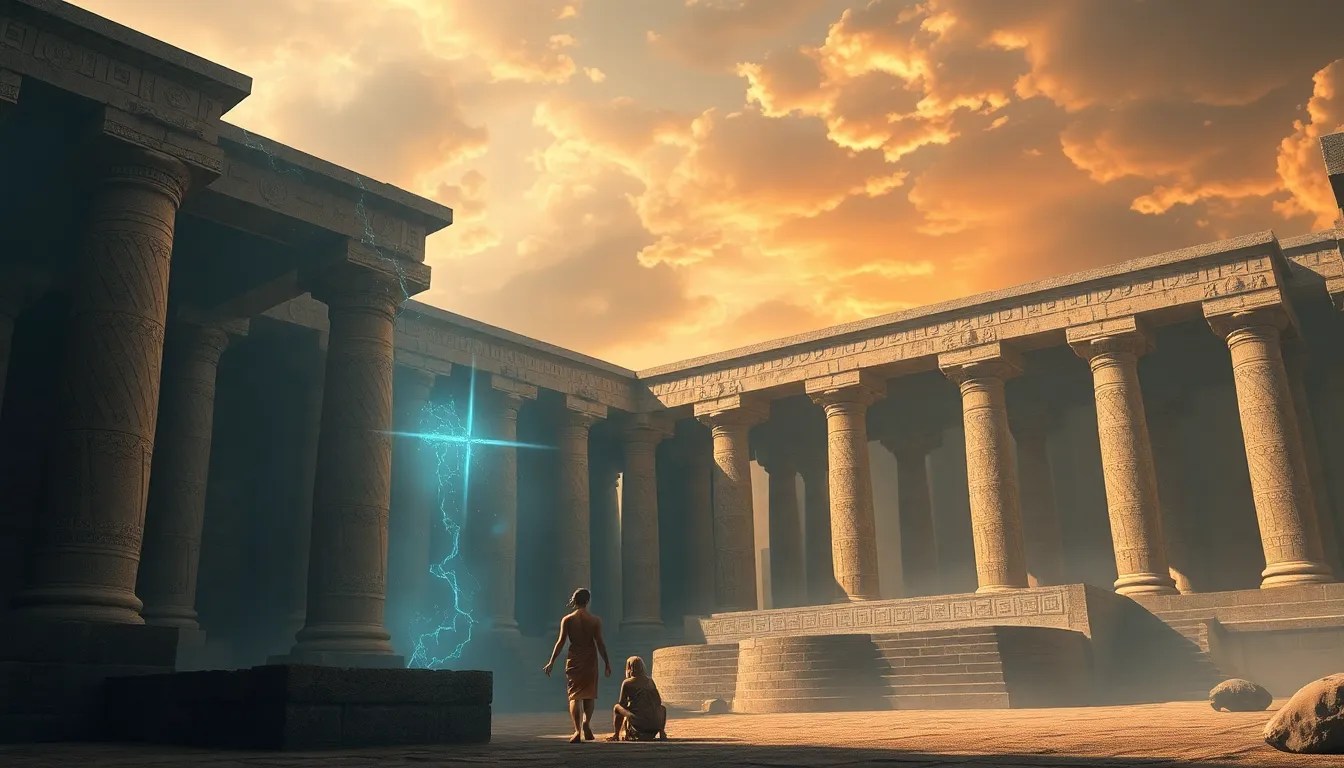The Oracles of Babylon: A Study of Divine Authority
I. Introduction to Babylonian Oracles
The oracles of Babylon were vital components of the ancient Mesopotamian belief system, serving as intermediaries between the divine and mortal realms. An oracle, in this context, was defined as a medium through which gods communicated their will or intentions to humans, often in response to queries regarding the future or moral dilemmas.
Babylonian society, thriving between 1894 BC and 539 BC, was marked by remarkable advancements in science, literature, and governance. Religion permeated all aspects of life, with the divine authority of gods manifesting through oracles, influencing everything from agriculture to state affairs.
This study aims to explore how oracles reflected divine authority in Babylonian culture, examining their significance, methods of divination, and influence on societal governance.
II. The Role of Priests and Priestesses
Within Babylonian religious institutions, a structured hierarchy existed, with priests and priestesses at the forefront of oracular practices. These individuals were not merely religious leaders; they were seen as the chosen vessels of the gods, endowed with the responsibility to interpret divine messages.
- Hierarchy: The priestly class was divided into various ranks, with high priests overseeing ceremonies and lower-ranking priests performing daily rituals.
- Responsibilities: Oracular priests and priestesses were tasked with conducting divination practices, maintaining sacred spaces, and ensuring that the gods were propitiated through offerings.
- Training: Becoming an oracle required rigorous training, often involving years of study in sacred texts, rituals, and the interpretation of omens.
III. Methods of Divination
Babylonian divination encompassed a wide range of practices, each serving as a method for interpreting divine will. The following are the primary methods employed by oracles:
- Dream Interpretation: Dreams were considered significant messages from the gods, and trained oracles would analyze dream symbols to provide guidance.
- Astrological Readings: The movement of celestial bodies was thought to influence earthly events. Oracles would study star patterns to forecast future occurrences.
- Liver Omens and Animal Sacrifice: Examining the liver of sacrificed animals was a common practice, believed to reveal the favor or displeasure of the gods.
Each divination method held unique significance, emphasizing the complexity of Babylonian spirituality. Case studies abound, with notable instances of divination leading to pivotal political decisions and military actions.
IV. The Language of the Gods: Interpretation of Oracles
The communication of oracles was often shrouded in metaphor and symbolism. The messages received by oracles were rarely straightforward, requiring skilled interpretation. The following elements were crucial in this process:
- Symbolism: Oracles often conveyed complex ideas through metaphors, which needed to be deciphered by the priestly class.
- Famous Prophetic Statements: Historical accounts reveal prophetic statements that shaped societal beliefs and actions, such as those found in the Epic of Gilgamesh.
This intricate language of the gods not only provided guidance but also reinforced the authority of the oracles and their closeness to the divine.
V. The Impact of Oracles on Society and Governance
The influence of oracles extended deeply into the fabric of Babylonian society and governance. Oracle predictions often guided political decisions, affecting the rise and fall of leaders.
- Political Influence: Kings frequently consulted oracles before embarking on military campaigns or making significant policy changes.
- Relationship with Monarchy: The Babylonian monarchy relied heavily on oracular advice, intertwining their authority with divine endorsement.
Numerous historical events, such as the decision to wage war or form alliances, can be traced back to oracular counsel, highlighting their pivotal role in shaping Babylonian history.
VI. The Oracles in Mythology and Literature
Oracles are richly represented in Babylonian mythology and literature, often serving as crucial plot devices. In the Epic of Gilgamesh, for example, oracles guide the protagonist in his quest for immortality.
- Mythological Representation: Oracles are depicted as wise figures, often possessing the ability to foresee events and provide counsel to heroes.
- Key Texts: The analysis of texts featuring oracles reveals the cultural significance of these figures in shaping moral lessons and societal values.
The legacy of Babylonian oracles extends into subsequent Mesopotamian literature, influencing storytelling traditions and religious texts.
VII. Decline and Transformation of Oracular Practices
Over time, various factors contributed to the decline of oracular practices in Babylon. Political upheaval, the rise of new religious ideologies, and shifts in societal values led to the transformation of these ancient traditions.
- Contributing Factors: The fall of Babylon to foreign powers diminished the authority of traditional oracles.
- Transition: Elements of oracular practices were absorbed into later cultures, influencing the development of new divinatory systems.
In modern times, there has been a revival of interest in Babylonian oracle traditions, with some contemporary spiritual practices drawing inspiration from ancient wisdom.
VIII. Conclusion: The Lasting Legacy of Babylonian Oracles
In summary, the oracles of Babylon played a crucial role in understanding divine authority within ancient Mesopotamian society. Their influence shaped political decisions, religious practices, and cultural narratives, leaving a lasting legacy.
Reflecting on the impact of Babylonian oracles offers insights into contemporary spirituality, as many individuals still seek guidance and connection with the divine. The relevance of oracles endures, reminding us of humanity’s ongoing quest for understanding the mysteries of existence.



